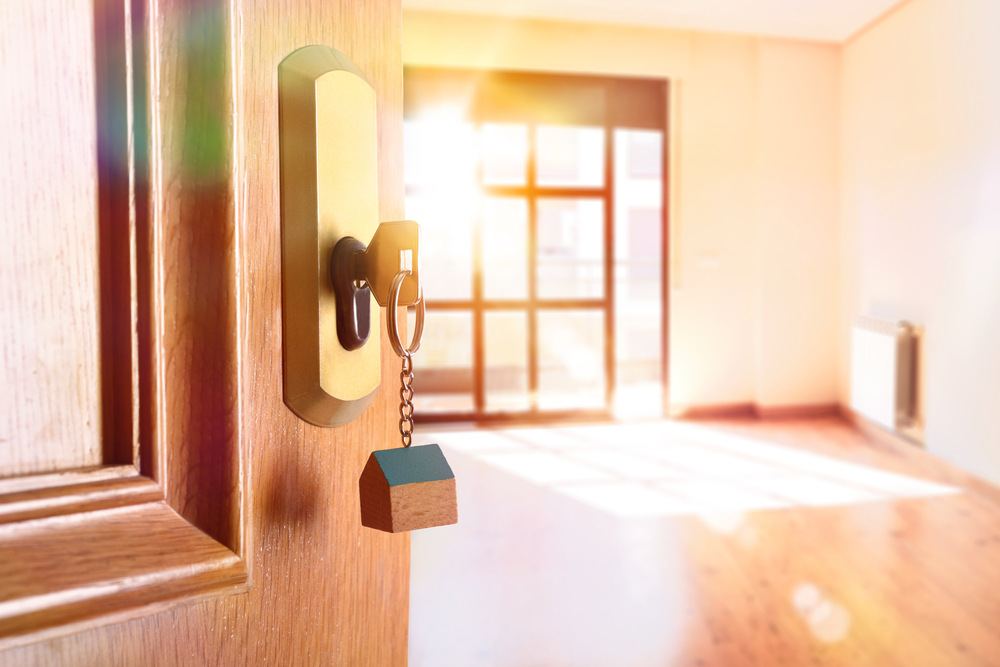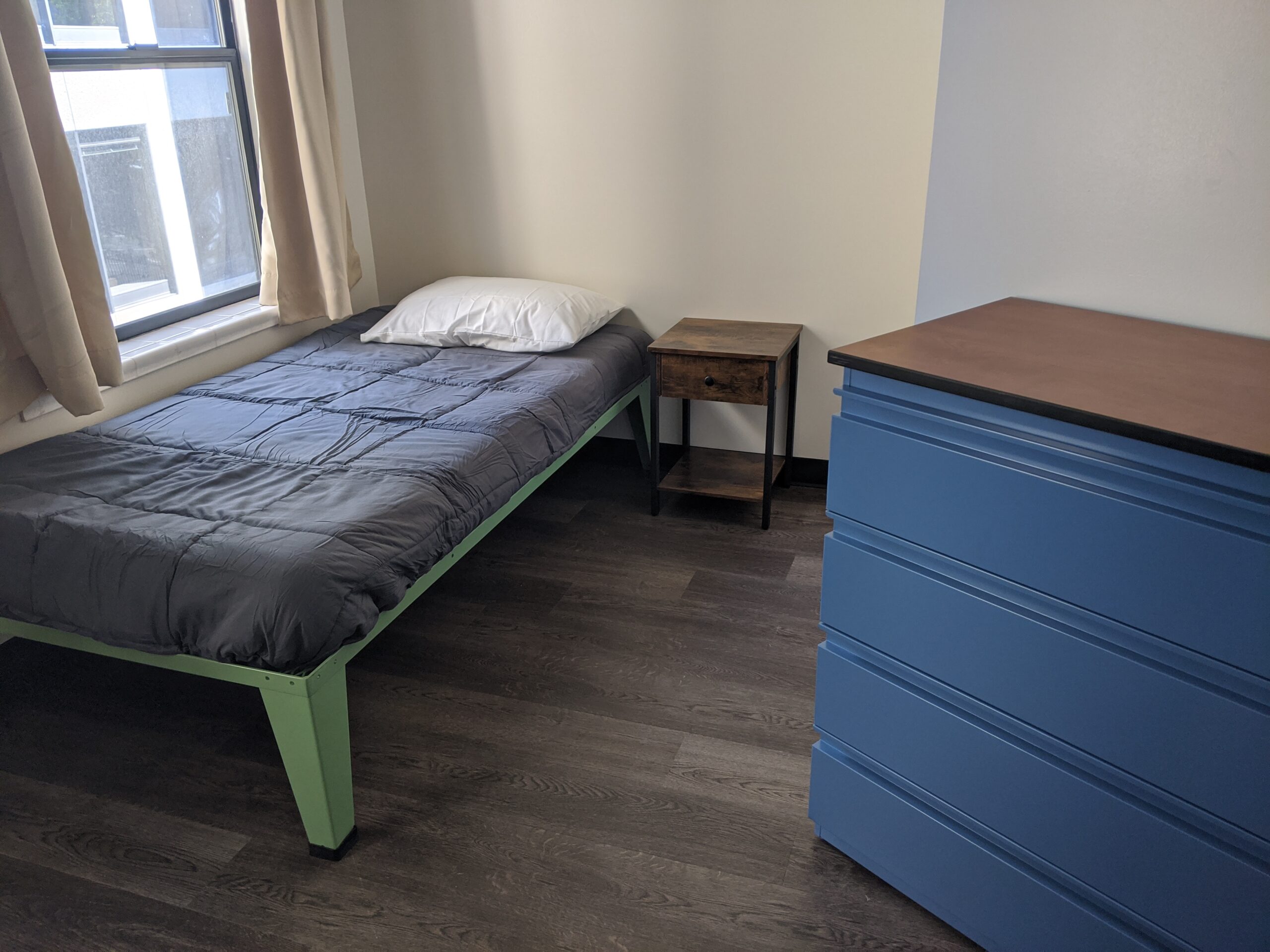Housing (TLP)
Outside In Transitional Living Services
Outside In’s Transitional Living Program provides onsite housing, support and case management to our youth community members experiencing houselessness and/ or housing instability in the Multnomah County Area.

Who is eligible
- 18 – 24 years old
- Must be screened into the Multnomah County Homeless Youth Continuum (HYC)
-
- How To: place a phone call the Access Center at (503) 432-3986 and leave a voicemail with your full name and callback number to get a screening appointment scheduled or visit during their hours of operation
-
- The Access Center is located at 1635 SW Alder Street
Portland, OR 97205
- The Access Center is located at 1635 SW Alder Street
-
- They are open 7 days per week, from 9am – 5pm
-
- Sometimes their phone lines can be busy, so if you do not hear back within 24 hours it is recommended that you try again
Contact

Frequently Asked Questions
What are the requirements of living within the Transitional Living Program?
Residents of Outside In’s Transitional Living Program must:
- Maintain productive time standards:
- Productive time refers to any time spent working towards the goals that you will set periodically with your case manager while living in the TLP
- Make deposits into Independent Living Account (ILA)
- All residents pay 30% of any income into an ILA account to practice the skill of a monthly housing payment. All funds that a resident pays into the ILA are returned to residents when they are ready to move out of the program and as they transition into their next housing opportunity
- Meet with Case Manager
- OI has onsite case management available to residents, and meetings are weekly requirements of the program. Meetings are to map out goals, identify and minimize potential barriers to housing and to offer general resources and support based on your individual needs.
- Meet with Contact Person
- Residents are required to meet with their assigned staff contact person weekly to ensure residents are meeting weekly program requirements, and to offer support.
- Pass weekly Room Checks
- Once a week, TLP staff conduct room checks to provide additional independent living support and ensure safe and habitable living standards for our residents.
- Pass weekly Chore Checks
- 3rds floor residents have shared living spaces and are expected to complete weekly chore contributions.
*** Parenting youth residents have additional program requirements to ensure the safety of their children, please read below ***
What kind of housing does Outside In’s Transitional Living Program offer?
The transitional living program is located on the third and fourth floor has different units to meet diverse needs:
- Third floor housing consists of three shared community living spaces, often referred to in the program as “pods” . Residents share a living room, kitchen and two bathrooms. There are five bedrooms in each community living space, and each resident has their own bedroom.
- The fourth floor consists of studio apartments, a Med House unit, and three parenting one-bedroom units.
- Studio apartments are available to residents who already meet the program requirements, and on top of those are either enrolled in school full-time or are employed full-time.
- Med House is reserved for youth who require more accessible unit while recovering from a major medical event.
- Parenting one-bedroom apartments are reserved for one single parent and up to two children.
- Parents living in the Transitional Program agree to the following*:
-
- Learn about my child’s growth and development.
-
- Work actively to develop parenting skills.
-
- Develop a long-term Housing Plan.
-
- Develop a plan for stable income.
-
- Pursue all entitlements for which I am eligible (WIC, TANF, HAP, etc.).
-
- Work towards the employment and educational goals I set.
-
- Determine childcare needs and create a plan that fits my needs.
-
- Learn about and work with other programs to develop parenting support.
-
- Develop monthly budgets that include the needs of my child(ren) and myself.
-
- Keeping my living space safe for my child(ren) and myself.
-
- Attend parenting classes or groups as needed.
-
- Get staff support if I am frustrated and need support.
-
- Be responsible for ensuring that my child is adequately supervised. I understand that adequate supervision means an adult is responsible for my child and within earshot of them.
-
- Tie diapers in a plastic bag and dispose of daily in the dumpster.
-
- Have on-site babysitters sign the Babysitter Agreement.
-
- I will let staff know if I am taking a night out with my child.
-
- Keep my child safe from physical abuse and neglect. I will not spank, hit, or use any form of abusive, shaming or humiliating language with my children.
The transitional living program is located on the third and fourth floor has different units to meet diverse needs:
- Third floor housing consists of three shared community living spaces, often referred to in the program as “pods” . Residents share a living room, kitchen and two bathrooms. There are five bedrooms in each community living space, and each resident has their own bedroom.
- The fourth floor consists of studio apartments, a Med House unit, and three parenting one-bedroom units.
- Studio apartments are available to residents who already meet the program requirements, and on top of those are either enrolled in school full-time or are employed full-time.
- Med House is reserved for youth who require more accessible unit while recovering from a major medical event.
- Parenting one-bedroom apartments are reserved for one single parent and up to two children.
- Parents living in the Transitional Program agree to the following*:
-
- Learn about my child’s growth and development.
-
- Work actively to develop parenting skills.
-
- Develop a long-term Housing Plan.
-
- Develop a plan for stable income.
-
- Pursue all entitlements for which I am eligible (WIC, TANF, HAP, etc.).
-
- Work towards the employment and educational goals I set.
-
- Determine childcare needs and create a plan that fits my needs.
-
- Learn about and work with other programs to develop parenting support.
-
- Develop monthly budgets that include the needs of my child(ren) and myself.
-
- Keeping my living space safe for my child(ren) and myself.
-
- Attend parenting classes or groups as needed.
-
- Get staff support if I am frustrated and need support.
-
- Be responsible for ensuring that my child is adequately supervised. I understand that adequate supervision means an adult is responsible for my child and within earshot of them.
-
- Tie diapers in a plastic bag and dispose of daily in the dumpster.
-
- Have on-site babysitters sign the Babysitter Agreement.
-
- I will let staff know if I am taking a night out with my child.
-
- Keep my child safe from physical abuse and neglect. I will not spank, hit, or use any form of abusive, shaming or humiliating language with my children.


